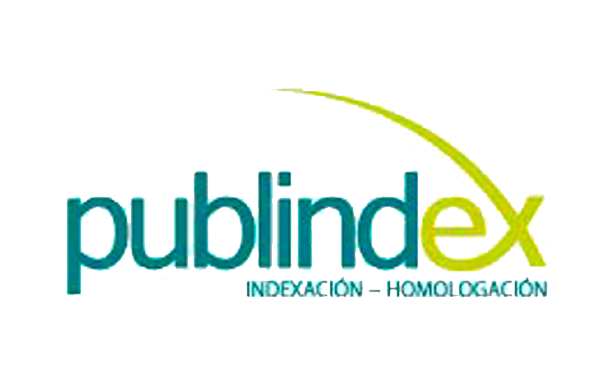Teaching To Do Research in Postgraduate Teacher Training for Secondary School Teachers in Colombia
Abstract
The purpose of this article is to analyze the training path of teachers who decide to continue their teacher training with a master's degree in education and to talk about how research is taught at this level of training. The routes and methodologies created and implemented by teacher trainers to teach research are reviewed based on the premise that teaching produces specific knowledge which is transmitted by those who teach. In addition, some reflections -from the teachers in training- about research learning are discussed. These analyses are rooted in a chain of projects -which have been developed to research the field of teacher training in Colombia- resulting from the doctoral research "Existing links between postgraduate teacher training and the elementary and high school teaching profession in two Colombian cities: Pasto and Valledupar”. However, this reflective and critical exploration is limited to reporting the research results of one of these projects: “Narrative understandings of research in postgraduate teacher education”; which was developed between 2018 and 2019. Data collection and analysis were based on the narrative accounts of three teachers who graduated from the master’s Program in Education. The resulting analyses of the teaching of research concern the need to be able to involve it in teaching practices, in the exercise of teaching knowledge from other places and incorporating new pedagogical, didactic and research elements into daily teaching practice.Downloads
References
Alliaud, A. and Antello, E. (2011). Los gajes del oficio: enseñanza, pedagogía y formación. Aique Educacion.
Alliaud, A. (2017). The artisans of teaching: On the training of teachers with craft. Paidós.
Álvarez, Z., Porta, L. & Sarasa, M. (2010). Narrative inquiry in teaching: good practices and biographies of memorable teachers. Journal of Education. 1, pp. 159,179. https://fh.mdp.edu.ar/ revistas/index.php/r_educ/article/view/12
Bain, K. (2012). what is good teaching? Journal of Education. Vol. 4, pp. 63 - 74. https://fh.mdp.edu.ar/ journals/index.php/r_educ/issue/view/8
Bolívar, A., Domingo, J. and Fernández, M. (2001). Biographical-narrative research in education. La Muralla.
Brisioli, B. (2016). The incidence of schooling conditions at the Secondary Level in the construction of school trajectories. National Autonomous University of Mexico. Institute for Research on the University and Education. Perfiles Educativos; XXXV; 154; 12, 134-153. http://ref.scielo.org/s55wh2
Creswell, J. (1994). Qualitative inquiry and research design. Sage Pubns.
Cometta, A. (2017). Didactics and its commitment to practice. A reflection on teaching knowledge.
Archives of Educational Sciences Journal, (11). https://doi.org/10.24215/23468866e021 Edelstein, G. (2013). Forming and being formed in teaching. Paidós.
Flick, U. (2007). Introduction to Qualitative Research. Morata.
Gibbs, G. (2007). The analysis of qualitative data. Morata.
Hernández, R., Fernández, C. and Baptista, P. (2014). Metodología de la Investigación. 6th edition. Mc Graw Hill. Herrera, J. (2013). Thinking education, doing research. Ediciones Unisalle.
Landín, M. and Sánchez, S. (2019). The biographical-narrative method. A tool for educational research.
Education. Vol. 8 (54), pp. 227-242. http://dx.doi.org/10.18800/educacion.201901.011.
Martínez, M., Calvo, G., Martínez, A., Soles, C. and Prada, M. (2015). Thinking teacher education today. A
proposal from the pedagogical experience. IDEP Research Series.
Martínez, M. and Carreño, P. (2020). The ethical commitment of university faculty in teacher education. Profesorado. Journal of Curriculum and Teacher Education, 24(2), 8-26. https://10.30827/ profesorado.v24i2.15150.
Morales Escobar, I. and Taborda Caro, M. (2021). The biographical-narrative research: meanings and trends in
the inquiry into teachers' professional identity. Folios, 53. https://doi.org/10.17227/folios.53-11257
Nocetti, A. and Medina, J. (2017). Conditions that trigger teacher reflection in future teachers during their training practices. Revista Espacios. Vol. 3 (15). https://www.revistaespacios.com/a18v39n15/ a18v39n15p02.pdf.
Rico, A. (2020). Existing links between postgraduate teacher training and the profession of being primary and high school teachers in two cities of Colombia: Pasto and Valledupar (doctoral thesis). Universidad Nacional de la Plata, Argentina. https://r.issu.edu.do/l?l=10594tcU
Sancho-Gil, J. M., Correa, J. M., Ochoa-Aizpurua, B., & Domingo, M. (2020). How university teachers learn. Implications for teacher education. Profesorado. Journal of Curriculum and Teacher Education, 24(2), pp. 144-166: https://10.30827/profesorado.v24i2.9050
Southwell, M. and Vassiliades, A. (coords.) (2023). Teacher education and work: New reflections on identities, institutions and practices. La Plata: National University of La Plata. Facultad de Humanidades y Ciencias de la Educación; Ensenada: IdIHCS. (Ágora; 3). https://doi.org/10.24215/978-950-34-2250-2.
Suárez, D. (2021). Narrative research, accounts of experience and revitalization of pedagogical knowledge. Espacios
en Blanco. Journal of Education. 31 (2), pp. 365-379. https://doi.org/10.37177/UNICEN/EB31-308
Terigi, F. (2006). Three problems for teacher policies. Panel Teachers, victims or culprits? A renewed look at the teaching issue in the context of social and educational changes. International Meeting Teaching, a profession at risk? Working conditions and health of teachers. Organized by OREALC, UNESCO Regional Bureau of Education for Latin America and the Caribbean. Montevideo, June 22, 23 and 24.
Terigi, F. (2013). VIII Foro Latinoamericano de Educación: saberes docentes: qué debe saber un docente y por qué. - 1st ed. Santillana.
Vasilachis, I. -coord.- (2006). Estrategias de investigación cualitativa. Gedisa. Vásquez, F. (2011). Educating with mastery. Ediciones Unisalle.
Vergara, M. (2017). The daily practice of teachers. A study from the training process in the
postgraduate studies. University of Guadalajara. University Center for Social Sciences and Humanities
Creative Commosn Licence 4.0








